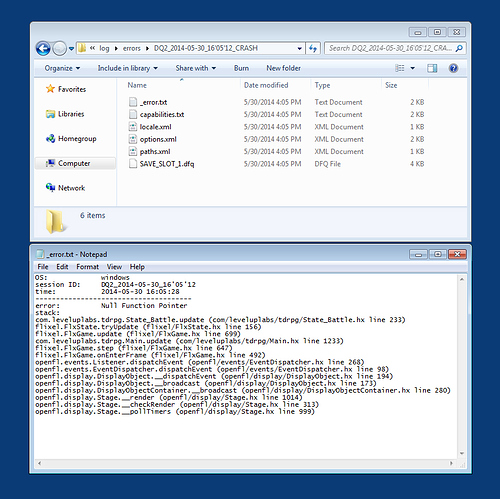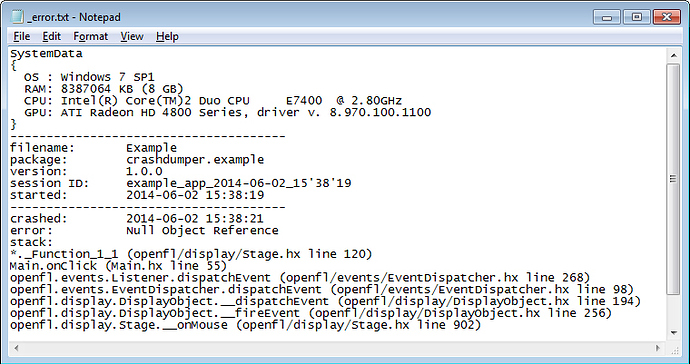I’m thinking of adding some more robust error-catching features to our test builds to streamline the bug-hunting process. Here’s the plan:
If/when the game crashes, it will:
- Capture as much error information as possible, output to a time&session-stamped error log before dying.
- Output a saved copy of the game’s save/config data, from the beginning of the play session
- Output HaxeFlixel replay data, from the beginning of the play session
- On next game startup, prompt the user to let the game email me that data
- (option settings will allow game to remember your choice and/or change it later)
In theory, this means I’ll have enough information to know:
- What part of the code crashed
- What your starting situation was
- Exactly what you did that resulted in the bug
It’ll take a while to work out the kinks, but I’d like to get this framework in place in the next few aleph builds. If I can get this going it should be way easier/faster to work out problems, especially those ephemeral “heisenbugs”
Thoughts?



